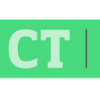This essay originally was published on April 13, 2023, with the email subject line "CT No. 163: Final_v5_FINALfinal_365."
I’d finally done it: I’d written the perfectly optimized landing page. The audience couldn’t possibly miss the message, and I was confident the client would see results. Each keyword was meticulously incorporated; each verb hand-selected with a craftswoman’s care; each sentence constructed with impeccable, near-poetic syntax. The gestalt deftly hit every request in the creative brief. Pour me a whiskey and call me Don Draper: barely a year into my first agency job and I’d already mastered the assignment.
I set off across the office, hoping to catch the account’s media director as he traversed the office between meetings. His approval was the crucial final step before it was sent to the client. During our standup two hours earlier, he had expressly hoped I’d finished it already, but my official deadline was the day’s end, and I needed the extra time to navigate the tricky subject matter.
Holding my laptop with the excitement of a puppy sharing a chew toy, I presented my work. He looked at my screen, nodded and smiled. “We’ll iterate,” he said, “and you can just email me next time.” Then he disappeared into another conference room.
I couldn’t tell whether the feedback was good or bad. “Iterate” certainly wasn’t a word I’d used in my previous ten years of editorial experience. It wasn’t a verb I recalled from journalism school, overheard at my book publishing internships, or bandied about at the web B2B editorial gig where I’d excelled previously. I knew what “reiterate” meant, but even with the “re” it didn’t track. What exactly did he mean by “we’ll iterate”?
I did what any adaptable performance marketing newbie would do: I Googled it. Every definition in the blue links mentioned the word “repetition” or had something to do with mathematics. Try as I might to apply it to the craft of web writing, I came up empty-handed. Either it didn’t mean what he thought it meant, or I was being completely obtuse.
Nearly a decade later, I realize it was a little bit of both. What the media director was trying to say was that not only did he want to make light edits to the language, but he also wanted me to think of a future where mine wasn’t the only version of a landing page produced for the campaign. He wanted me to be open to developing other options to feed the algorithms.
What is iteration, and why is it popular in digital business?
Simply put, iteration is a repetition of a process to solve a specific problem, and it’s a big part of how machine learning algorithms are developed and optimized. Iterations are helpful when you have identified a process's elements (such as a website and money for an ad campaign) and a clear result the elements are working toward (such as 20 new users in one month).
Iterative processes let computers figure out how to connect one end of that equation with the other. Like optimization, where resources are focused to create the best path to fulfill a prime directive (usually form fills, button clicks, engagements, etc., unless you’re Robocop), iteration is a term for a computer process that’s now applied to content production.
Iteration is familiar in software development and data science, and it’s embedded in the production methodologies and business models of the internet: development processes like Agile and GIT and books like The Lean Startup advocate for rapid, repetitive testing of digital products. Some in tech believe that as long as you have the distribution mechanisms (the ad network or an ad store) and the product framework (an ecommerce website or an app), it’s only a matter of iterating different versions of creative content until you find the winner. If you test enough versions, ultimately you’ll find one that makes money.
Among the venture capital buoys of performance marketing in the 2010s, where tech companies owned both distribution and product, the digital experience was so novel that nearly any content would perform. In this business bubble, my media director colleague saw iteration as the first step to discovering both small, incremental gains and large leaps forward—the kind of digital performance that excites growth hackers and executive types.
Why are media production norms different from iteration?
But the way devs, data scientists, and their bosses think about iteration doesn’t always match with editorial and entertainment industry production methodologies and norms. So when they’re hiring to fill their content-based apps, websites, or digital marketing assets with world-changing creative fodder, there’s often a reality check when the content professionals get to work. While digital production allows publishers to swap creative elements easily within a content management system, theoretically running many versions each day, it’s a much bigger leap to ask content professionals to create iteratively.
Iteration should not be confused with other similar words or processes. Repetition in creative production with the goal of mastery is called practice or rehearsal. Every iteration of a performance isn't released to the public to be evaluated. Writers develop drafts to test the precision of their language and strength of their ideas, not to create a bunch of lesser, more ill-considered alternatives to a finalized work. Artists intentionally invoke tropes in literature or design; but the creator’s intent in using these genre conventions is usually to produce a wholly new effect on an audience, not a slightly altered copy.* And even in creative agencies, production methodologies and frameworks (such as content pillars or templating) may produce similar results across different projects, but the output of each project is not intended to replace the previous version.
*Of course, plenty of pulp publishers excel at mass reproduction of slight variations within a genre: sci-fi, romance, mystery, horror, porn, and superhero comics. Just before writing this essay, I read Molly Young’s list of the best books by sci-fi hero Philip K. Dick, which summarizes "how this business model affects its creatives: “His book advances were skimpy and there was a family to support, so he wrote quickly, often fueled by amphetamine tablets.” Still, writers like Dick used the more iterative genre publishing schedule to conceptualize ideas never before seen in sci-fi, rather than to rewrite each sentence with different synonyms.
The many drawbacks of minimum viable content
The goal of iteration, on the other hand, is to work from a minimum viable creative idea and test what will grow toward the intended result. While the goal of iterative design is to know half-baked ideas have potential — fast — the outcome in the real world is a sea of unfinished products and roughly hewn promotional content, much like the internet itself.
The iteration business exists in sharp contrast to traditional print media and video production; in industries more aligned with manufacturing than software engineering, iteration is difficult and not particularly profitable. Whether printing newspapers, records or books, tiny changes to content mean type must be reset, plates and colors re-calibrated. Once the book or magazine ships, its physical being is out there in the world, not to be changed until the next printing.
Video production is an even bigger mess when iterative methods are introduced. Anyone who's been on a video set knows that seemingly minor changes to staging can mean extra hours of work for the lighting crew. “We’ll fix it in post” causes eye rolls from veterans who see clearly how the whole thing could have been planned better. Sure, Hollywood can make changes during production, but that could mean hours or days of union time wasted and money burned… all because someone wanted to change a line.
Twentieth century manufacturing-driven cultural industries also value originality and exclusivity, whether that means publishing a juicy scoop in the evening news or releasing the only girl toy–themed summer blockbuster. Getting it right on the first try often means a more profitable product.
The people who think, “We should do the exact same thing as last time but with one minor tweak to better affect market performance” tend to underestimate the expense and intention of creative work. They don’t see that iterations can have a butterfly effect, that “just one small change” early on can affect an audience’s comprehension of a message or have some cascading ripple effect that causes errors down the line.
Creative works are ecosystems, not experiments with clearly identified variables. There’s a reason graphic designers hate being asked to make the logo bigger: it throws off the balance of the entire creation. Too many iterations can become an Exquisite Corpse exercise: attempting to complete the whole picture without knowing the aims of your collaborators creates a monster.
Iterative production can also effectively gaslight a target audience. When a marketing team hasn’t properly installed A/B website testing software, audiences literally see one version load, then another version replaces it, all within a second or two—an effect commonly known as flashing.
While the best software and website redesigns stoke delight upon launch, gradual changes over time can have the opposite effect. It’s similar to a bit of midwestern business logic called creeping decrementalism: if you gradually cut the sugar from the breakfast cereal, one bit at a time over the course of many months, at some point the consumer switches to a sweeter product.** No one likes feeling like they missed something important when they log into a previously familiar experience to find it changed. Is the navigation bar the same as the one you saw last time you were online? Did this page look this way yesterday? Did you accidentally dismiss an important popup feature announcement? Or is there just an entirely new button where your old standby used to be?
Alienating your target users at a high rate is a no-no in user experience, content production and audience messaging. People are smart, and our spidey senses of scam perception are on high alert, especially in online contexts. When a company messages a mass audience iteratively and finally lands on The Best Performing Advertisement of All Time, they may well have burned through or annoyed a good percentage of potential customers.
**The “creeping decrementalism” adage is from my husband’s former coworker, who had done time with a major Minnesota grain company. There’s no record of the phrase on the internet, so perhaps it’s not entirely “correct” or “a thing.” But hey! That’s how business decisions get made and money moves—because of “common sense” maxims and cheeky grain industry anecdotes shared over chicken caesar wraps at conference tables. If there are any economists here (probably not), I’m assuming there are 80 gajillion more concepts I’m missing or misrepresenting, but I am bored to tears by econ textbooks and much prefer Midwestern sales folklore.
The failed experiment of A/B content testing
And how do you know it’s The Best Performing Advertisement Of All Time? Welcome to the world of performance marketing, where the A/B test reigns supreme. While A/B testing has its merits — it’s quite good at solving creative disputes for two wildly different approaches — it’s not nearly as helpful for understanding the effects of minor tweaks to content on your target audience. In a general test, the red button will always outperform the blue, but if the test throws off your brand continuity and grosses out the detail-oriented aesthetes with a high lifetime customer value, was temporarily changing that CTA button to red for the purpose of data science really worth it?
And as many of my content strategy colleagues have discovered, programmatic content A/B testing software doesn’t often produce conclusive results, especially not quickly. Most websites and apps don’t attract enough active users to achieve statistical significance efficiently.
With randomly assigned A/B tests, you never know if your target audience even saw the content iterations in equal amounts, or at all. When it comes to learning what content resonates, you’re usually better off working with a focus group or guided user testing and hearing direct feedback. Or, better yet, use the time and resources you spent testing to hire more capable creators, ones who understand how to intentionally create high-performing content.
And most programmatic A/B testing tools are misused anyway, assuming that every user will behave like the person before. If you one-off A/B test an email subject line, you are only testing which subject line will inspire people to open the email one time, instead of which will inspire people to buy the product or stick around for the subscription.
If you A/B test your homepage headline for paid advertising performance, you’ve forgotten that people who click on ads are a different user type (and likely more open to sales suggestions) than those navigating the blue links organically to find the best resource. There are reasons that Google is retiring Optimize and McDonald's sold off Dynamic Yield.
Strategies for content professionals to cope with iterative business norms
So what can you do if your creative team is told to iterate? Here are a few practical suggestions for work environments unaccustomed to how creative production differs from software development methodologies:
- Clearly establish goals.
Make sure the goal of each creative exercise is understood by both the iteration cheerleaders and the classically trained creators. Because iteration invokes a math equation — one side of the equation adapting to meet its match on the other side of an equal sign — there’s always a goal in mind, by definition. And clearly defined end goals are great for content people! The best creative producers work well when developing content or designs to achieve an end result; they write and position creative elements intentionally to produce emotional outcomes. If iterators understand that the creation is in service of a solid final result, they’ll likely back off the rapid testing wagon. - Know your metrics.
Because content is distributed on code machines in a capitalist system, content success means that its creators have to know, at some level, what the numbers mean, especially when you’re making a case for considered editorial content. The metrics power the distribution system, literally. You’ll have a much easier time collaborating with performance marketers, data scientists, and executives if you can show solid proof in your digital analytics that your content is bringing in new audience members, engaging the existing audience, and driving value for your organization. And it’ll help the mathematically inclined understand that you’re giving a good faith effort to meet in the middle and prove the return on their investment in content, rather than battling it out with anecdata or, worse, standing behind some artistic ideal that exists outside reality. - Demonstrate originality.
Be open to showcasing that you’re more original than a highly iterative language generator like ChatGPT and a more on-brand bet than user-generated content, and share your writing practice and process. Explain that your work takes time because your teammates are iterating like humans, aka making intentional creative decisions. Offer to explain your choices. Write a variety of subject lines for each email, and consider each unused version “practice.” Don’t get too precious about tiny changes that don’t affect meaning, and instead... - Know when to (delicately) ruffle some feathers.
Unlike software development, where only a few select engineers know how to build the code that powers the product, everyone can read and write content, technically. Different teams and stakeholders may take the creative brief in a completely different direction than you’d anticipated (or ignored it entirely). When presented with versions of messaging or design that make you scratch your head, work on introducing different iterations of the phrase, “Do we really want to attract the audience who thinks that messaging is good? Do we think they are buyers? Is that really our crowd?” I have never found a successful version of this phrase that doesn’t temporarily offend someone in the room who thought they were a creative genius on the first go, but let me know if you land on the winning result. - Develop a creative sandbox in channels more amenable to iteration.
Feed-based, real-time content channels like newsletters and social media can help you meet your stakeholders halfway if you bake some experimental content in with the good stuff. In environments where experimentation is valued, conduct occasional tests on low-stakes feeds. If you’re lucky enough to have true fans who read every single word you publish, test new content approaches with them. Take a cue from traditional publishing and throw a few wild posts in with those content pillars to see what sticks. - Protect the purse strings.
When additional iterations are requested and all else fails, bring the conversation back to resources: how much money or how many hours will additional iterations take to create? How could that time be used to further improve or test those changes? Do those seemingly iterative, minor changes introduce potential errors or misinterpretations? Could those errors result in lawsuits? Remind stakeholders that one fully considered creative product is safer for the brand than a million variations rapidly iterated by a computer that doesn’t understand connotation or consequences.
With the ability to rapidly generate content at a moment’s notice, iterative content creation is not going to disappear. But with discussion of the differences between traditional creative and software development processes and an understanding of the disconnect, content professionals can better navigate the conversation when someone requests “just a few more iterations of this idea.”
Hand-picked related content








